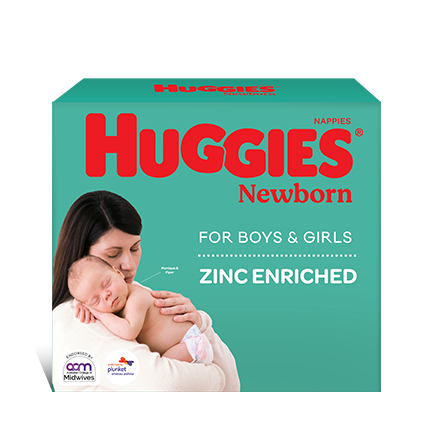Reading to our children is one of the joys of parenting. It can be such a special time and a lovely way to spend quality time with each other. Reading to children helps to build their vocabulary, imagination, literacy and general language skills and it needs to be prioritised as much as their nutrition and health needs. Though unfortunately, in the busy lives of most family it can often be overlooked.
Making time to read to our children everyday reaps untold benefits, not just in the short term but for years to come. Children who are read to are more likely to eventually read to their own children, in similar ways.
So much of what we do as parents is intergenerational. Books tend to be one of those things which we attach sentiment to because we remember the emotions they generated in us when we were small. Favourite books from childhood are easily recalled and as parents we often want to foster the same pleasant emotions by sharing family favourites.
Studies show that children need to “read” one thousand books before they start school. Of course, they won’t be able to do this on their own, but being read to for at least five minutes a day with at least one book will add towards this goal.
Why is reading to my child so important?
Children need to learn how to link print with meaning. Those black lines, dots and circles on a page actually mean something. But to fully comprehend what letters mean takes hundreds of hours of exposure.
The printed word is everywhere in our environment. Every society relies on its language to be communicated by voice and print. Adults who have problems with literacy often struggle because so much of our everyday functioning depends on being able to read. Literacy starts at birth.
When should I start reading to my child?
Mem fox, one notable Australian children’s book author says that if children haven’t begun to read by their first day of school, it is almost too late.
- There are benefits to reading to your baby when she is still in your womb. Just hearing the sound of your voice will help your baby’s brain to build nerve pathways and connections between each neuron.
- Reading also helps with bonding and building an emotional attachment which will last for life. If you are in the habit of reading to your baby before it is born, then after birth it will be easier to continue.
- Reading to your baby whilst you are still pregnant is a lovely way for fathers to connect with their babies as well. The depth of his voice will be different to your own but it will be a familiar presence by the time your baby is born.
- Watch for your baby’s movements when you read. Often there is a response to voice stimulus from parents and this feedback can be a really positive sign that your baby can hear you.
From birth reading can be a daily activity which you both enjoy. Although your baby won’t understand what you are saying, he or she will pick up on the tone and intonation of your voice. When adults read to babies and children, they give the message “you are important” which is one of the most powerful affirmations we can give as parents.
What is the best way to read to my child?
- You don’t need to think too hard about whether you are reading to your child the “best” or “right” way. As long as you show some enthusiasm and are engaged in the story and its telling, this is a great start.
- Think about the intonation and pitch of your voice. Most parents automatically read with a sing-song voice and an exaggeration on some vowels and words.
- Many children’s books have an inbuilt repetition and rhythm in their stories. If there is humour in the story, get involved in this and make a point of helping your child see it.
- Don’t feel as if you need to adhere to the story line, it is not a prescription. Children’s book authors want parents to break away from the story from time to time, to branch off into little sub-stories of their own. For example ask your child “What do you think that dog is doing there”? And go off on a little tangent about their reply.
- Get yourselves comfortable, on a bed, the couch, on a rug on the grass, wherever you feel physically comfortable so you can invest as much of your concentration into reading as possible.
- Get your child's take on the story to encourage use of imagination.
- Show some animation in your face when you read to your child. Your eyes and your mouth will tell as much of the story as your voice will. If you look bored and like reading is a chore, your child is likely to pick up on this.
- Choose books to read which you’ll both enjoy. Kids often want to be read the same story over and over again. The reasons for this are fairly simple, they like the security of knowing what is going to happen and like us, they just prefer some things to others. Nice as it is for our kids though, it can get pretty tedious for parents having to read the same book for the 100th time. Try to encourage your child to be open to other books and ensure there are some new ones coming into the house regularly.
- As adults, it’s worth remembering that holding a book the right way up, reading it from left to right, turning pages one at a time and knowing where the beginning, middle and end of a book are, are all skills which need to be learnt. So role model the right way to hold and use books.
- Try not to exaggerate or over emphasise your voice too much. If it seems forced your child will pick up on this and sense that something isn’t quite as it should be. It will also dilute the effectiveness during those times when emphasis really is warranted, such as an exciting part of the story.
When should I stop reading to my child?
Lots of parents tend to stop reading to their children once their child can read independently. But this is a shame because it is still offers many advantages even though, strictly speaking, parents don’t need to. Some families make a point one evening a week, of turning off the television, sitting together with one parent reading aloud to the rest of the family.
Continue reading to your child until it is no longer enjoyable for you both. Adapt what you read to fit the child’s age and look for more adventurous stories which build anticipation and are more likely to hold their interest. One way of boosting their engagement is to stop reading at the end of a chapter where the story-line is hanging and the outcome is yet to unfold.
When is the best time to read to my child?
- The best time to read to your child will be when you are both relaxed and not in a hurry to be somewhere else.
- Reading needs to be seen as a pleasure, not a chore. If parents view reading to their children as another thing to get through in a busy day, their kids will pick up on this.
- Reading aloud to children needs to be seen as a calm, enjoyable and relaxing activity. So it’s important to get excited about it and use positive language when you are about to read.
- Many parents incorporate reading as part of a pre-bed ritual. This can start from birth as well, during feed and play times.
- Any time during the day or night, in any place, reading can be done. Aim to get into the habit and let it become one of your everyday activities with your children.
What should I look for in a children’s book?
- Babies love simplicity and colour in most things, including books. Bright, primary colours with big pictures of recognisable objects such as animals, household items, faces and toys are all good.
- Board or fabric books are less likely to be damaged and are more durable for the very young.
- As children get older, it makes sense to expose them to books which need to be handled more gently.
- Plastic coated books can be played with in the bath, where they have the added attraction of holding their attention for a little longer.
- The key message is that children need to be exposed to books wherever they are in the house; their bedroom, the bathroom, the living room and even outside. Adapt the book to fit the environment and then children learn to view reading and books as not being a separate activity from the rest of their lives.
- Some children’s books authors do stand out from the rest and their books are worth investing in. The Children’s Book Council of Australia is a good resource for parents.
- Librarians and staff at specialty children’s book stores are a wealth of information when it comes to age appropriate books and authors.
- Don’t overlook the importance of magazines with pictures, newspapers and even junk mail in your child’s reading diet. They will only benefit by learning that printed words come in all formats and fonts. Capital letters, lower case, italics and bold lettering need to be accepted as all varieties of letters but carrying the same meaning.
What else can I do?
- If you are not a member of a local library, then investigate this. Join your child up as soon as they are old enough and make a fuss of them becoming a member. Take them to the library with you, go to the children’s book section and make mutual selections on books you think they will enjoy.
- See giving books for birthdays, Christmas and celebrations as a positive, loving act. Special books for special occasions help to foster a love of reading and an association that books are to be treasured.
- Aim to encourage a respect for books in your children. Placing them back into the bookcase, not bending or tearing pages and generally caring for books will give the message that they are important.
- Get some audiobooks, and read along together; these are a favourite for many. For older children whose attention span has developed, listening to an audiobook in a quiet spot is a great way of relaxing.
- Join a book club yourself and invest time and energy into your own reading. Research shows that parents who read themselves, who are literate and who read from a variety of media such as books, magazines, on-line/web sites will make a positive difference in their children’s attitudes to literacy. Boys especially, benefit from seeing their fathers reading.
- Be open to the new technology which is changing our current associations with texts. Kindles (e-book readers) and on-line books are the way of the future. Although virtual books are unlikely to replace hard copy, they do have a place in the home alongside other books.
- Make sure your child can access their books easily. Having a book case or book shelves at their height is important. Older children need to feel some control over what and when they choose to read. When parents are the keepers of books in a household it limits opportunities.
- Singing songs, poetry and nursery rhymes are all closely linked with learning to read as well.
For more information see Parenting .
Last Published* May, 2024
*Please note that the published date may not be the same as the date that the content was created and that information above may have changed since.





















